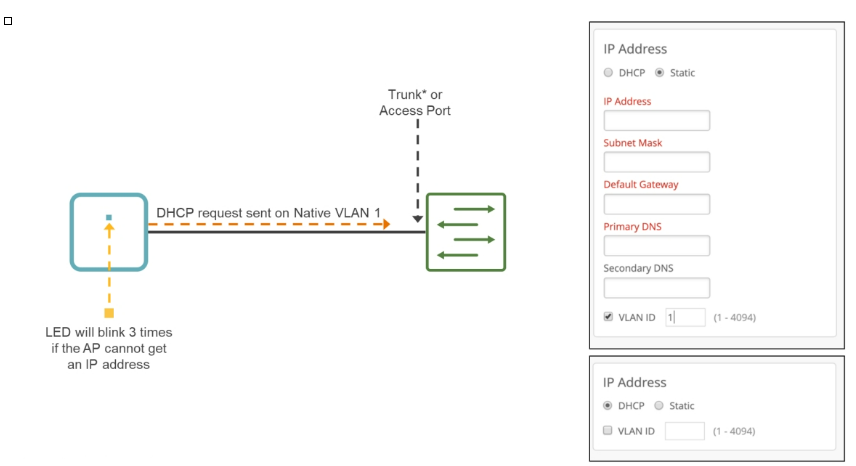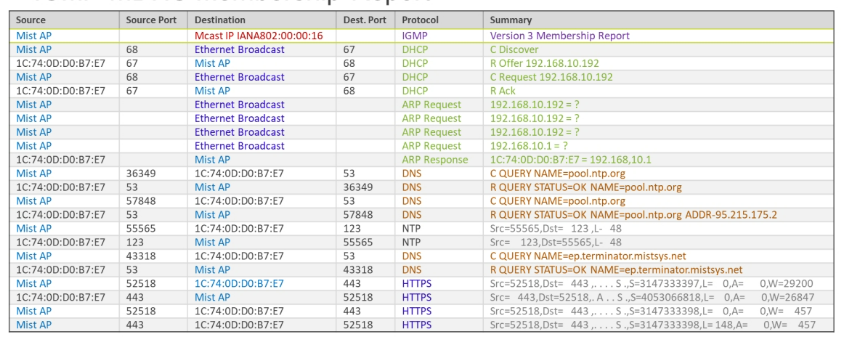EMAIL SUPPORT
dclessons@dclessons.comLOCATION
USJuniper AP Boot Procedure
Initial Boot
Out of the box, the AP depends on being connected to a trunk or access port with a configured Native VLAN 1. DHCP requests will be sent out on Native VLAN 1. The LED will blink three times if it cannot get an IP address. Any static IP requirement for the AP must be pre-staged by first receiving a DHCP lease for network connectivity.

AP Boot Process
This AP boot sequence is based on an actual packet capture of an AP booting up for the first time. The first packet is an Internet Group Management Protocol (IGMP) membership group packet used for multicast DNS (mDNS). Multicast DNS is used for name resolution without a DNS server, using multicast packets. Sending an IGMP report, the AP informs the upstream device that it is interested in mDNS traffic and it shouldn’t be filtered.

The second sequence of packets are the DHCP DORA (Discover, Offer, Request, and Acknowledge) packets.
The next sequence represents the AP gratuitously requesting an Address Resolution Protocol (ARP) for its own IP address.
The AP then sends an ARP request to its default gateway. The AP receives a response for the gateway (192.168.10.1).
In this sequence, the AP attempts to first resolve the Network Time Protocol (NTP) server pool.ntp.org. You can see that the server responds with the IP for pool.ntp.org (95.215.175.2) .
After correctly resolving the NTP server name, the AP then makes an NTP request to set its time.





LEAVE A COMMENT
Please login here to comment.